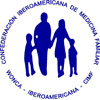Diagnosis of the situation of rural health for medical education in Uberaba
Resumo
Introdução: Health profile of the community is coadjutant factor for performance the health team and also for the academic formation,as it allows the interface between health actions and policies in force in this segment. The diagnostic area as an academic tool demonstrates the social determinants and more prevalent pathologies,allowing better clinical work and a more complete understanding of rural health.
Objetivos: Analyze data on rural health Information System for Primary Care (SIAB) in Uberaba, MG, as part of medical training to understand the role of the Family Health in local rural areas.
Metodologia ou descrição da experiência: The analysis of data provided by the registration form of the SIAB, for the year 2012, and its relation to the politics of rural health were analyzed descriptively, seeking a better approach to family medicine in these areas. The methodology employed for this analysis was a descriptive study based on analysis of records of enrollment of families (Match A) and by visits to family health teams in rural areas made by medical students at the Federal University of Triângulo Mineiro. This methodology allowed to initially understanding the situation of health service user in rural areas, as well as the psychosocial dimension that surrounds it.
Resultados: The data and dialogue with teams showed that 15.64% of the 10,000 registered patients reported hypertension as the most widespread disease, with 3.47% of the population spoke diabetes mellitus, being essential government policies for these conditions, as the HIPERDIA. The analysis presented in the endemic region for Chagas disease was rarely reported, representing about 1% of this rural population, which demonstrates the chronic degenerative diseases have higher incidence than infectious diseases, even in the rural population. Think about how to provide appropriate support from diagnosis to treatment of these pathologies in the affected population is essential.
Conclusões ou hipóteses: Understanding the specific living conditions of the rural community by academics in training implies a better orientation in terms of Medical Education in family medicine and in the understanding of the health status of the population as a result of social determinants and risk factors to which it is exposed.
Palavras-chave
Texto completo:
PDF (English)Apontamentos
- Não há apontamentos.
Este periódico é de responsabilidade das associações:
Apoio institucional:







